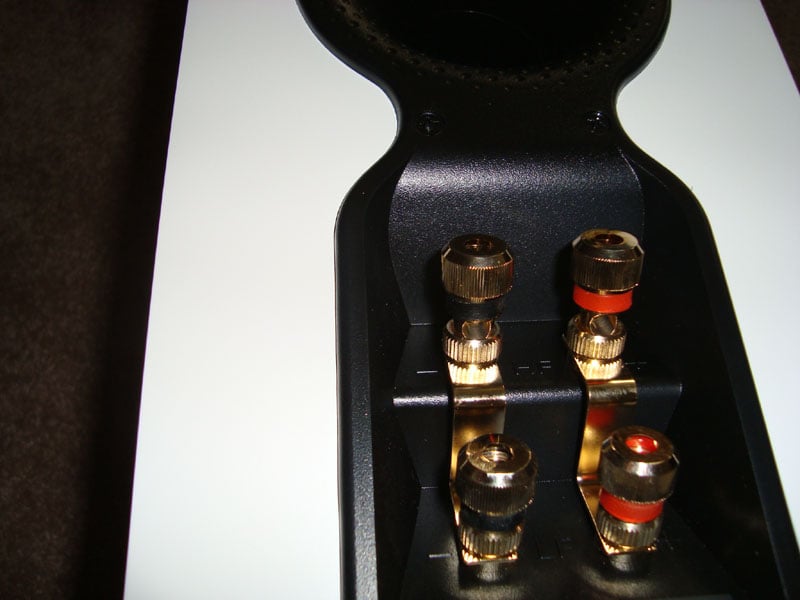So reading that article that does make references to harmonic and modulation distortion as a means of seperating and tuning it out and allowing you to manually set the cross over to give you the cleanest possible sound. On the one hand Q Accoustics and QED are part of the same group, so they may have their own purpose for pushing this argument (to make you buy more of their cables). Others though do think differently. The below is worth a read:
There are various ways to connect loudspeakers. Bi-amping vs bi-wiring, active vs passive bi-ampling; what kind of effect can it have on your audio system and is it audible? Read on.

www.audioholics.com
Looking at this objectively, it does come back to what i was inferring to earlier. If we take the Q Accoustics article as is, and the reason for having this as an old school way to help reduce modulation distortion presented by the crossover filters (needed due to the distortion brought about by the increase of power), then the objective should be eliminating distortion to begin with to remove the need for those filters in the first place.
The most obvious recent example of this tech which ripped up the rule book and changed audio forever has been demonstrated by the THX AAA feed forward error correction technology.
THX AAA gives a no-compromise headphone experience by delivering the hi-fi audio with low levels of noise, distortion and power consumption.
www.thx.com
The below i found a really good video that I recommend worth watching:
View: https://www.youtube.com/watch?v=AZw-PZFpcxw
Now whilst this tech has been implemented effecitvely in low power SOC headphone amp devices which became the benchmark that has turned the headphone industry on it's head, it would seem the difficulty of implementing this tech in Powered amplifiers must be harder....either that or companies are still taking advantage of consumers.
After trawling the internet, the only device that i've seen that has implemented this is the Benchmark AHB2. As such the AHB2 doesn't need the high and low filters, and the published distortion figures seem to be in another league to their competition.
On searching for it on ASR, Amir was fortunate enough to get one to review:
This is a review and detailed measurements of the Benchmark AHB2 Amplifier using THX technology to reduce distortion. I was going to request one for testing due to membership demand but to my pleasant surprise, the company volunteered to contact me and send not one, but two units! I requested...

www.audiosciencereview.com
At this point this level of performance should be what everyone else should be using as a benchmark (pun not intended) if Powered/speaker amplifiers are going to have a chance of competing with Headphone amplifiers in quality distortion free audio.

www.audioholics.com

www.audiosciencereview.com

